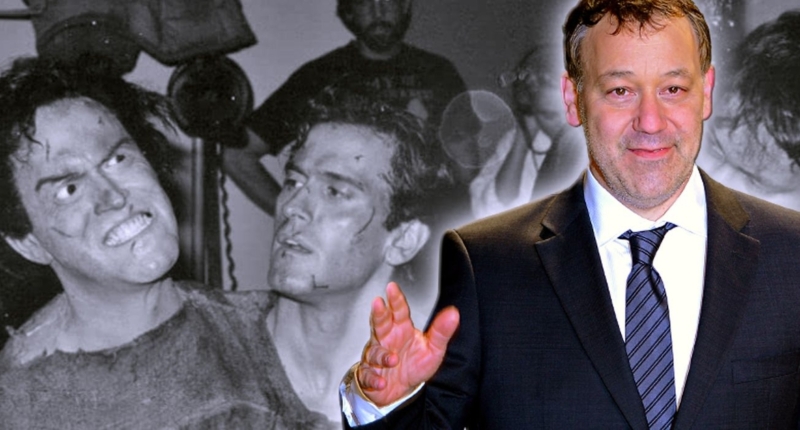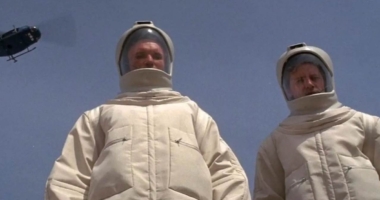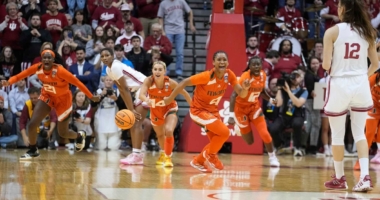The article talks about famous filmmakers and screenwriters who used pseudonyms to hide their identity for different reasons. For instance, the alias has been used by blacklisted workers, embarrassed filmmakers, and modest creators who want to avoid their names flooding the opening credits. The article mentions famous directors like Paul Verhoeven, David O. Russell, Steven Soderbergh, and Joel and Ethan Coen who used pseudonyms to hide their identity. In addition, the article explains how Dalton Trumbo used the name Ian McLellan Hunter and Robert Rich to receive his awards. The article also highlights some of the reasons why these filmmakers used aliases, such as avoiding union violations, keeping shameful credits off their filmography, and keeping a low profile during retirement. The article also provides examples of the most successful pseudonyms, including Alan Smithee, Roderick Jaynes, and Reginald Jaynes, who have garnered multiple Oscar nominations for their work.
10 Directors Who Used Pseudonyms for Their Film Credits
Several filmmakers have opted to use pseudonyms for various reasons, including avoiding union violations, blacklisting, and keeping certain credits off their filmography. Here are ten renowned directors who have used fake names in some of their movie credits:
1. Paul Verhoeven
Image via Sony Picture Classics
Known for his science fiction action films such as “RoboCop,” “Total Recall,” and “Starship Troopers,” Paul Verhoeven is a highly-regarded filmmaker. However, the director used a pseudonym for the TV edited version of his controversial film “Showgirls.” The film received two Golden Raspberry Awards for Worst Picture and Worst Director, and Verhoeven disowned the heavily-edited cut, crediting the alias “Jan Jensen” instead.
2. The Alan Smithee Alias
The Director’s Guild of America created the alias “Alan Smithee” to allow members to disown embarrassing projects. Since 1968, the name has been credited as a director 138 times, as an actor 44 times, as a writer 32 times, as a cinematographer 21 times, and as a producer and editor 17 times. Some of the decorated directors who have used the moniker include Michael Mann, Sam Raimi, and David Lynch.
3. “The Nutt House”
The team behind 1992’s “The Nutt House” was so embarrassed by the project that six of the writers used fake names to mask their identities.
4. “Supernova”
Three directors, including Francis Ford Coppola, worked on the science fiction action film “Supernova.” However, only Walter Hill received credit, using the name “Thomas Lee.”
5. “The Texas Chainsaw Massacre”
Tobe Hooper is the credited director of the horror classic “The Texas Chainsaw Massacre,” but he shared the credit with a fake name, “Lewis Carroll,” due to legal issues.
6. “Dune”
David Lynch’s name was removed from the TV edit of “Dune” due to creative differences with the producers, and the alias “Alan Smithee Jr.” was used instead.
7. “E.T. the Extra-Terrestrial”
Due to contractual obligations, Steven Spielberg was not allowed to have his name appear in the credits for “Poltergeist,” which he directed. However, he was able to use the pseudonym “Tobe Hooper” for a cameo in “E.T. the Extra-Terrestrial.”
8. “The Dark Knight”
Christopher Nolan’s brother, Jonathan Nolan, wrote the screenplay for “The Dark Knight” under the name “Jonathan Nolan” to avoid any potential nepotism accusations.
9. “Death Proof”
Quentin Tarantino used the alias “Quentin Jerome” for his role as a rapist in his film “Death Proof.”
10. “The Fly”
David Cronenberg used the name “Peter Smith” for his role as a gynecologist in his film “The Fly.”
Filmmakers Who Used Pseudonyms for Their Film Credits
Several filmmakers have used fake names for various reasons, such as avoiding union violations or keeping certain credits off their filmography. Here are some renowned directors who have used pseudonyms in some of their movie credits:
1. Walter Hill
Walter Hill disowned the science fiction action film “Supernova” by crediting the fake name “Thomas Lee” as the director. Hill quit the project after frustration with MGM and the film’s budget. Directors Sholder and Coppola were brought in to attempt to salvage the production. By then, Hill had already invested a great deal of sweat equity into the film.
2. Dalton Trumbo
Screenwriter Dalton Trumbo was part of “The Hollywood Ten,” a group of filmmakers shunned by Hollywood because of ties to the Communist Party. After the 1947 ban, Trumbo used the pseudonym “Ian McLellan Hunter” for his work on 1953’s “Roman Holiday,” which won an Oscar. He also won another Academy Award for 1957’s “The Brave One,” this time, under the pseudonym “Robert Rich.”
3. John Hughes
John Hughes employed the alias “Edmond Dantès” after writing the scripts for “Beethoven,” “Maid in Manhattan,” and “Drillbit Taylor.” The pseudonym was inspired by the main character from the novel “The Count of Monte Cristo.” The inactive filmmaker used the fake name to keep a low profile during his retirement.
4. David O. Russell
David O. Russell has been successful in aligning himself with critically acclaimed content. The five-time Academy Award nominee has also been effective in erasing his name from roles and projects by crediting his work under the pseudonym “Stephen Grenne.” Russell quit and disowned “Accidental Love” by forfeiting the director’s credit to the fake name “Stephen Grenne.” The director also used the alias for his cameo appearances in “Three Kings” and “Adaptation.”
5. Steven Soderbergh
Steven Soderbergh has been attached to popular projects like the “Ocean’s Eleven” trilogy, “Erin Brockovich,” and “Magic Mike.” The Academy Award-winning director has also been covertly linked to other Hollywood projects while hiding behind aliases.
Filmmakers who used aliases on movies helped them avoid union violations or aid them in keeping shameful credits off their filmography. Whether for legal reasons or personal preferences, these directors have gone under pseudonyms in some of their movie credits.
Filmmakers Who Used Pseudonyms for Their Film Credits
Many filmmakers have used pseudonyms to hide their identity or avoid union violations. Here are some notable directors who have employed fake names in some of their film credits:
1. Steven Soderbergh
Steven Soderbergh used his father’s name, “Peter Andrew,” as a pseudonym for cinematography on “Traffic” due to strict Writer’s Guild guidelines. He also used his mother’s name, “Mary Ann Bernard,” for editing in “Solaris.” In addition, Soderbergh used the alias “Sam Lowry” in “Criminal” and “The Underneath,” borrowing the protagonist character’s name from “Brazil.”
2. Charlie Kaufman
Charlie Kaufman, a multiple Academy Award-nominated writer, has used two aliases for past works. He credited his directing and writing under the pseudonym “Francis Fregoli” for his 2005 play “Anomalisa.” Kaufman’s fictional twin brother from the movie, “Donald Kaufman,” also shared a writing credit with him for the film “Adaptation,” which received an Oscar nomination for Best Adapted Screenplay.
3. Coen Brothers
The Coen Brothers, Joel Daniel Coen and Ethan Jesse Coen, split their credits evenly and have used fake names to share the difference. They used the pseudonyms “Roderick Jaynes” and “Reginald Jaynes” for editing credits on various projects. “Roderick Jaynes” received two Oscar nominations for his work on “Fargo” and “No Country for Old Men.”
4. Sam Raimi
Sam Raimi, known for directing the “Spider-Man” trilogy, has used pseudonyms on four different occasions to avoid fame. He used his mother’s name, “Celia Abrams,” for his writing credit on “Easy Wheels.” Raimi, along with his brother Ivan Raimi, Bruce Campbell, and Scott Spiegel, used the fake name “Alan Smithee Jr.” for their work on the critically panned “The Nutt House.” Lastly, he was credited as “R.O.C. Sandstorm” for his work on “Man With The Screaming Brain” and his editing on “Army of Darkness.”
Filmmakers have used pseudonyms for various reasons, such as avoiding union violations, keeping certain credits off their filmography, or hiding their identity. These directors have gone under fake names in some of their movie credits, resulting in critical acclaim and recognition for their works.
Don’t miss interesting posts on Famousbio










